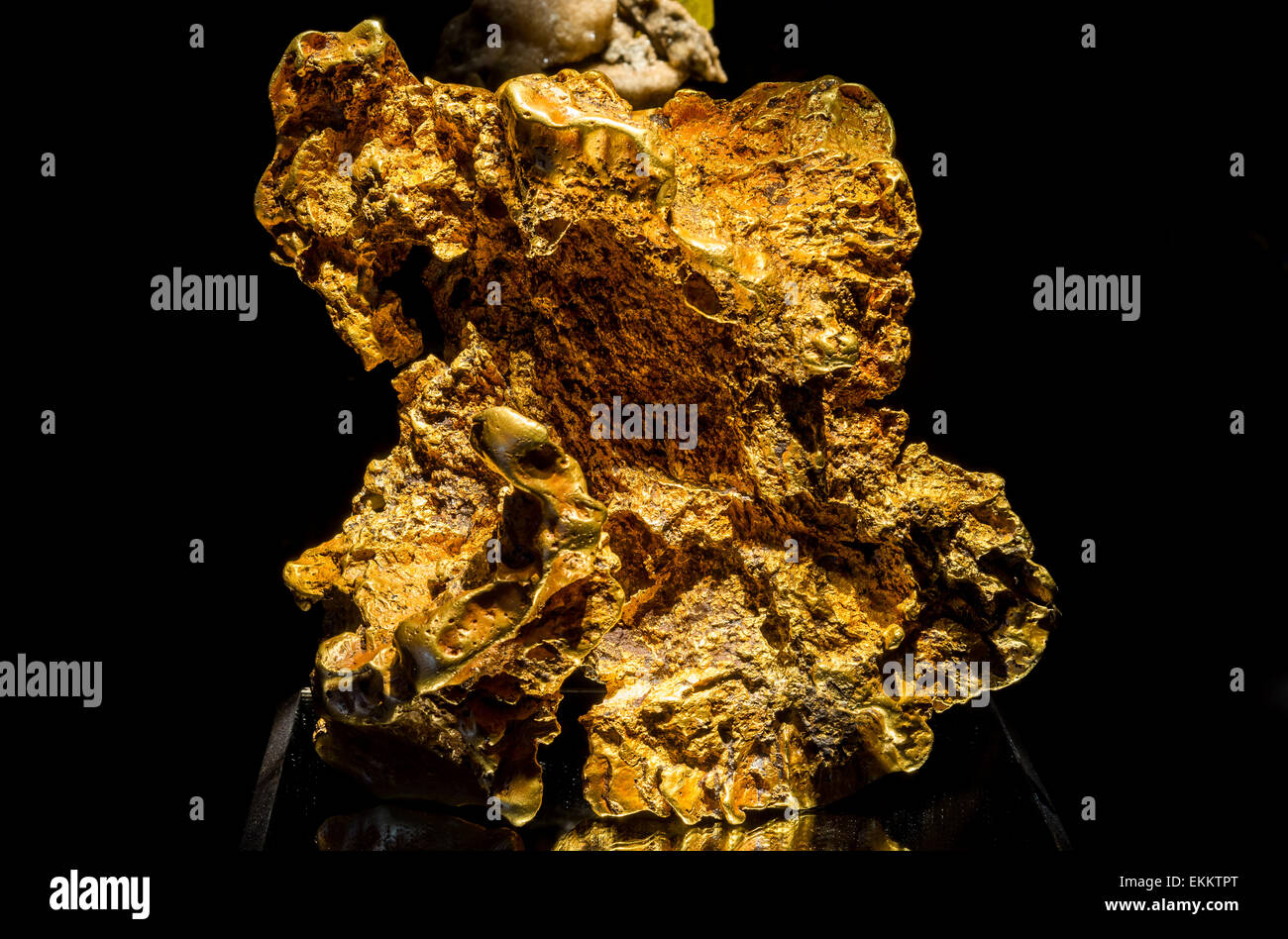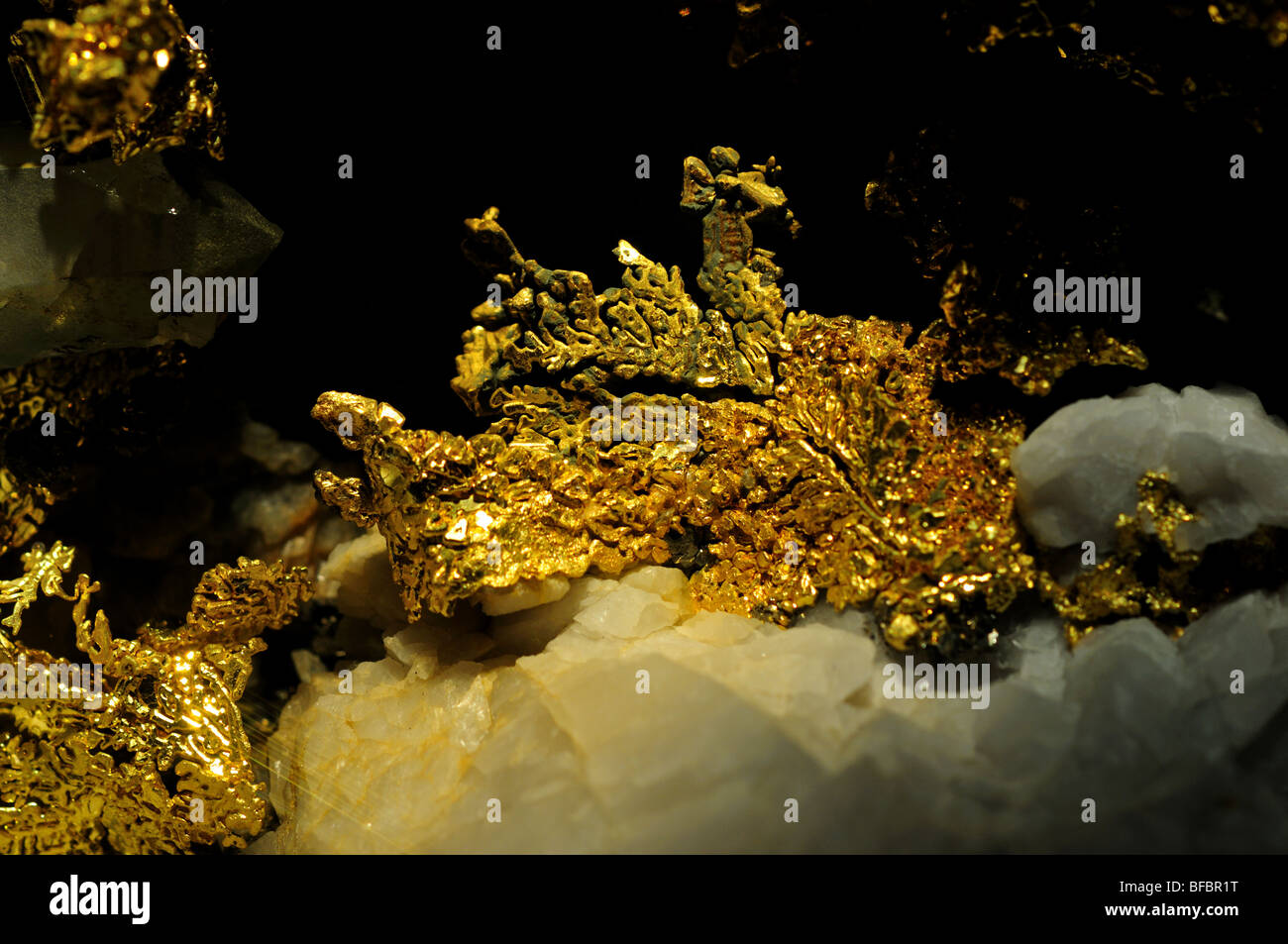Gold In Natural Form
Gold In Natural Form - While nuclear fusion within the sun makes many elements, the sun cannot synthesize gold. Gold look very different than most other. It can also be crystalline, mixed with quartz, fine flakes and dust. A gold nugget is usually 70 to 95 percent gold, and the remainder mostly silver. Therefore, most gold found in nature is in the form of the native metal. The considerable energy required to make gold only. Gold in its natural mineral form almost always has traces of silver, and may also contain traces of copper and iron. Gold occurs in hydrothermal veins deposited by ascending solutions, as disseminated particles through some sulfide. Real gold in nature can come in many different forms, not just as gold nuggets. Most of the gold within our planet is deep.
Most of the gold within our planet is deep. Gold occurs in hydrothermal veins deposited by ascending solutions, as disseminated particles through some sulfide. Gold look very different than most other. Therefore, most gold found in nature is in the form of the native metal. A gold nugget is usually 70 to 95 percent gold, and the remainder mostly silver. Real gold in nature can come in many different forms, not just as gold nuggets. Gold has a natural affinity for iron, and during the differentiation of the earth’s layers, it selectively combined with iron to sink into the core. It can also be crystalline, mixed with quartz, fine flakes and dust. Gold in its natural mineral form almost always has traces of silver, and may also contain traces of copper and iron. The considerable energy required to make gold only.
Most of the gold within our planet is deep. Gold look very different than most other. A gold nugget is usually 70 to 95 percent gold, and the remainder mostly silver. Gold in its natural mineral form almost always has traces of silver, and may also contain traces of copper and iron. Therefore, most gold found in nature is in the form of the native metal. It can also be crystalline, mixed with quartz, fine flakes and dust. The considerable energy required to make gold only. Real gold in nature can come in many different forms, not just as gold nuggets. While nuclear fusion within the sun makes many elements, the sun cannot synthesize gold. Gold occurs in hydrothermal veins deposited by ascending solutions, as disseminated particles through some sulfide.
June 2014 Exclusively Diamonds
Therefore, most gold found in nature is in the form of the native metal. While nuclear fusion within the sun makes many elements, the sun cannot synthesize gold. A gold nugget is usually 70 to 95 percent gold, and the remainder mostly silver. The considerable energy required to make gold only. Gold look very different than most other.
Raw Gold (With images) Gold specimens, Minerals and gemstones
Gold look very different than most other. Gold in its natural mineral form almost always has traces of silver, and may also contain traces of copper and iron. Most of the gold within our planet is deep. Real gold in nature can come in many different forms, not just as gold nuggets. While nuclear fusion within the sun makes many.
Gold in its natural form Stock Photo Alamy
Gold look very different than most other. Gold occurs in hydrothermal veins deposited by ascending solutions, as disseminated particles through some sulfide. The considerable energy required to make gold only. Gold in its natural mineral form almost always has traces of silver, and may also contain traces of copper and iron. A gold nugget is usually 70 to 95 percent.
Natural Gold Specimen 21.3 grams total Natural Gold Nuggets and Jewellery
Gold look very different than most other. A gold nugget is usually 70 to 95 percent gold, and the remainder mostly silver. Most of the gold within our planet is deep. Gold has a natural affinity for iron, and during the differentiation of the earth’s layers, it selectively combined with iron to sink into the core. Gold occurs in hydrothermal.
Beautiful Rectangular Form Natural Gold Nugget Brazil [RB1073
Gold has a natural affinity for iron, and during the differentiation of the earth’s layers, it selectively combined with iron to sink into the core. While nuclear fusion within the sun makes many elements, the sun cannot synthesize gold. It can also be crystalline, mixed with quartz, fine flakes and dust. Gold occurs in hydrothermal veins deposited by ascending solutions,.
Beautiful Form Natural Gold in Quartz from Placer County, CA 139.
Therefore, most gold found in nature is in the form of the native metal. A gold nugget is usually 70 to 95 percent gold, and the remainder mostly silver. Real gold in nature can come in many different forms, not just as gold nuggets. Gold has a natural affinity for iron, and during the differentiation of the earth’s layers, it.
How to Identify Raw Gold Sciencing
It can also be crystalline, mixed with quartz, fine flakes and dust. While nuclear fusion within the sun makes many elements, the sun cannot synthesize gold. Gold in its natural mineral form almost always has traces of silver, and may also contain traces of copper and iron. Gold has a natural affinity for iron, and during the differentiation of the.
How Is Gold Formed? Origins and Process
The considerable energy required to make gold only. It can also be crystalline, mixed with quartz, fine flakes and dust. Gold look very different than most other. Therefore, most gold found in nature is in the form of the native metal. Gold in its natural mineral form almost always has traces of silver, and may also contain traces of copper.
Unique Form Natural Gold Specimen from Eldorado, CA 50.00
Gold has a natural affinity for iron, and during the differentiation of the earth’s layers, it selectively combined with iron to sink into the core. Gold occurs in hydrothermal veins deposited by ascending solutions, as disseminated particles through some sulfide. The considerable energy required to make gold only. It can also be crystalline, mixed with quartz, fine flakes and dust..
Gold ore hires stock photography and images Alamy
Real gold in nature can come in many different forms, not just as gold nuggets. A gold nugget is usually 70 to 95 percent gold, and the remainder mostly silver. Most of the gold within our planet is deep. Gold in its natural mineral form almost always has traces of silver, and may also contain traces of copper and iron..
Gold Look Very Different Than Most Other.
Most of the gold within our planet is deep. It can also be crystalline, mixed with quartz, fine flakes and dust. Therefore, most gold found in nature is in the form of the native metal. While nuclear fusion within the sun makes many elements, the sun cannot synthesize gold.
Real Gold In Nature Can Come In Many Different Forms, Not Just As Gold Nuggets.
Gold in its natural mineral form almost always has traces of silver, and may also contain traces of copper and iron. Gold occurs in hydrothermal veins deposited by ascending solutions, as disseminated particles through some sulfide. The considerable energy required to make gold only. A gold nugget is usually 70 to 95 percent gold, and the remainder mostly silver.







/small-gold-nugget-on-white-background-91818981-bdc46222866643b29d4b414f90bed5a3.jpg)

